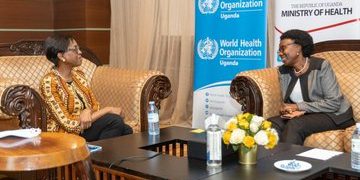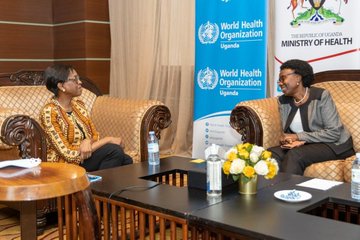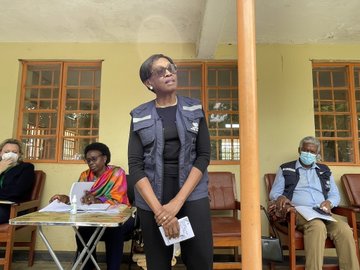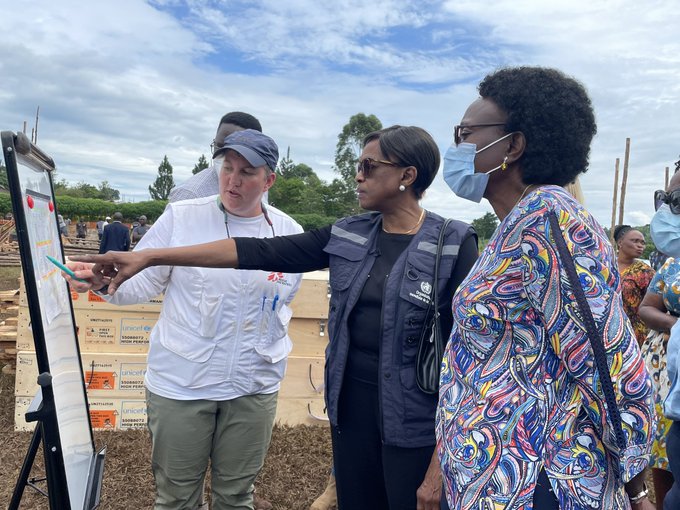World Health Organization (WHO) committee of external experts has evaluated three Ebola candidate vaccines and agreed all should be included in the planned trials in Uganda.
“Today, I’m pleased to announce that a WHO committee of external experts has evaluated three Ebola candidate vaccines and agreed that all three should be included in the planned trial in Uganda,” WHO Director-General Tedros Adhanom Ghebreyesus told reporters, adding that vaccine trials would soon begin.
Speaking from the G20 summit in Indonesia on Wednesday, the UN health agency chief said WHO and Uganda’s Minister of Health, Dr Jane Aceng, have considered and accepted the committee’s recommendation.
“We expect the 1st doses of the Ebola candidate vaccine to be shipped to Uganda next week,” he said.
According to Dr Tedros, a separate group of experts has selected two investigational therapeutics for a trial, as well as a trial design that is now being submitted for approval by WHO and authorities in Uganda.
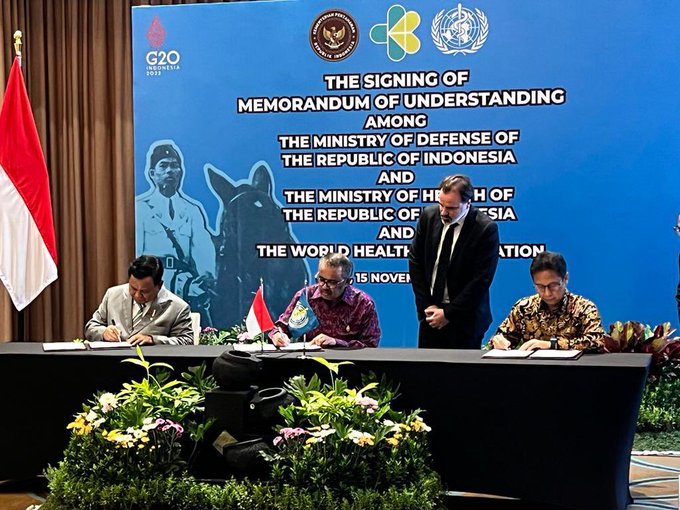
There have now been 141 confirmed and 22 probable Ebola cases in Uganda with 55 confirmed and 22 probable deaths.
Tedros says the government’s response efforts have slowed transmission in most districts and two districts have not reported any cases for 42 days.
In the past week, the district of Jinja reported its first Ebola case, becoming the 9th district to be affected.
“WHO and partners are supporting the Ministry of Health to intensify case investigation, contact tracing, community engagement, and infection prevention and control measures.”
Candidate Vaccines
The candidates include; a vaccine developed by Oxford University and the Jenner Institute in Britain.
The second one is from the Sabin Vaccine Institute in the United States of America. The third candidate came through the International AIDS Vaccine Initiative (IAVI).
They will be used in a ring vaccination trial of contacts of confirmed Ebola patients and contacts of contacts. Frontline and health workers will also receive a jab in these trials.
Response efforts
Dr Matshidiso Moeti, WHO Regional Director for Africa, is in Uganda this week to see firsthand the country’s response efforts to the Ebola outbreak and engage with teams on the ground and the frontlines.
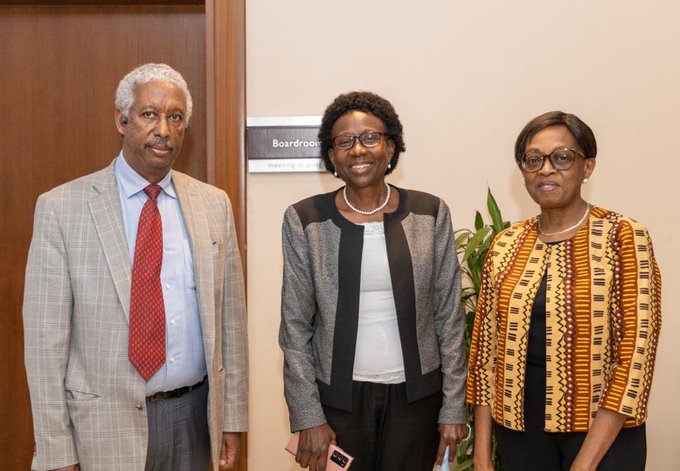
On Wednesday, she co-chaired a meeting of the National Task Force which discussed the situation and response to the Ebola outbreak in Kassanda district which recorded a total of 48 cases, 20 deaths and 19 recoveries as of November 14, 2022.
Moeti called the meeting “insightful” and that she was “impressed by the country’s tireless work to stop the Ebola outbreak”.
“We can bring the virus to heel with robust contact tracing, detection, isolation of cases and good supportive care, and we will,” she noted.
“WHO will continue to support and collaborate with the Ministry of Health and partners to stop this virus.”
After visiting Kassanda and Mubende, the two districts affected by Ebola, Moeti pointed out: ”Great to see the response first-hand. To curb the virus, we must double down and escalate the response.”
HE Ellen Ostebo, Ambassador of Norway to Uganda, said she has been following the situation in Uganda and is happy to experience the improvement of the response on the ground and to see that cases are slowing down.
“I encourage the ministry and partners to continue the hard work to end this outbreak. I am impressed by the work done by the government of Uganda in the response to the Ebola outbreak. It is really important to make sure that we all provide our financial, technical and mental support to the population as well as healthcare workers.”
Mrs Namulindwa Phoebe, the Kassanda Resident District Commissioner (RDC), said they have been able to manage Ebola patients. “We are moving house to house to trace contacts and raise awareness of the disease. We don’t want more cases.”
The team was accompanied by the Resident Coordinator of the United Nations (UN) in Uganda, Susan Namondo, Ambassadors of the Irish embassy, the Norwegian embassy and representatives of other international organisations including USAID and Africa CDC.
